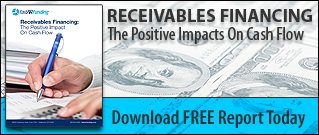 I’m sure there are a lot of business owners out there who have the fiscal cliff on their mind. Some of you probably have big questions about how your business is going to be affected with the tax cuts being eliminated. You probably have questions like:
I’m sure there are a lot of business owners out there who have the fiscal cliff on their mind. Some of you probably have big questions about how your business is going to be affected with the tax cuts being eliminated. You probably have questions like:
- How is this going to affect my expenses?
- Are my revenues going to decline?
- How does this impact my cash flow?
These are all valid questions. The big question is the impact on cash flow. If your customer base has their expenses increase due to eliminated tax cuts, then your cash flow is going to get tight.
How To Improve Your Cash Flow
There are a number of ways to improve your cash flow:
- Find an investor to take a chance on your business. Keep in mind you could lose some control and decision-making ability in your business.
- Make sure your accounts receivables are very efficiently managed.
- Explore short-term business loan options, including factoring loans.
What Is A Factoring Loan?
A factoring loan is a form of short-term business financing where you sell your company’s accounts receivable of creditworthy customers to a commercial finance company known as a factor.
Advance rates vary, but are typically 80%. When an invoice is paid, you get the remaining portion back less any applicable fees.
If the looming fiscal cliff has you worried about your company’s cash flow and overall business, this is a viable option for you. Factoring of accounts receivables is a great way to bridge the gap between when an invoice is billed and when the cash is collected.
Benefits Of Factoring
If you’re intrigued but are still feeling apprehensive about the whole idea of factoring your receivables, here are some benefits to factoring to help put your mind at ease:
- Factoring loans are easy and quick to establish.
- You don’t have to factor every invoice. If you have a large order with extended terms, you may want to factor the invoice only for that order. Orders such as these really kill your cash flow.
- All of your factoring may be done online, depending on your factor. This includes submitting invoices and requesting advances from your line of credit.
- Factoring is considered short-term financing, so you aren’t indebted to a lending institution (a bank) for an extended length of time.
Some Helpful Tips
If you decide to take out a factoring loan, here are some helpful tips when factoring invoices:
- Consider factoring all of your receivables, if possible. This helps you organize your business finances and have a solid, predictable cash flow.
- End quick pay discounts to your customers. By factoring your receivables, you are getting the cash you need in hand to conduct business. Unfortunately, it’s not uncommon for us to see our client’s customers take advantage of the discount even if they’re paying outside of the required time frame.
- When you need just a little cash flow help, look at factoring select receivables from your most creditworthy customers. They typically pay faster and keep your costs in check while getting your immediate cash needs resolved.
Fast A/R Funding specializes in helping small businesses bridge the cash flow gap with factoring. Schedule a demo below, or call 888.833.2286 to speak with one of our small business finance consultants.






